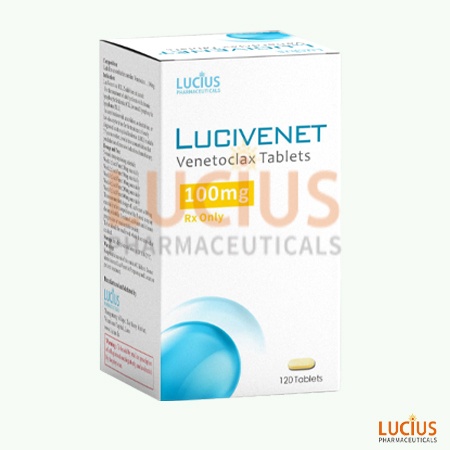

Another NameVenclexta、Venclyxto、维奈托克、唯可来
IndicationsIt is mainly used for the treatment of chronic lymphocytic leukaemia (CLL), small lymphocytic lymphoma (SLL) and certain types of acute myeloid leukaemia (AML).
Reg No.09 L 1009/23
Inspection NO.


Venetoclax (also known as Vinaclax, Venatura, etc.) is a world-first drug that selectively targets the B-cell lymphoma-2 (BCL-2) protein.By selectively inhibiting the function of the BCL-2 protein, Venetoclax restores the cellular communication system.
As a novel targeted therapeutic agent, Venetoclax has demonstrated good efficacy and safety in the treatment of various haematological tumours such as CLL and AML. With the deepening and expanding of clinical research, the application prospect of vinatocet will be even broader.
Venetoclax
Patients with leukaemia or lymphoma
Venetoclax may cause embryo-fetal harm when administered to a pregnant woman. There are no available data on Venetoclax use in pregnant women to inform a drug-associated risk.
There are no data on the presence of Venetoclax in human milk or the effects on the breastfed child or milk production.
Venetoclax may cause fetal harm when administered to pregnant women.
The safety and effectiveness of Venetoclax have not been established in pediatric patients.
Clinical studies of Venetoclax in patients with AML did not include sufficient numbers of younger adults to determine if patients 65 years of age and older respond differently from younger adults.
Due to the increased risk of TLS, patients with reduced renal function require more intensive prophylaxis and monitoring to reduce the risk of TLS when initiating treatment with Venetoclax.No dose adjustment is recommended for patients with mild, moderate or severe renal impairment.
No dose adjustment is recommended for patients with mild (Child-Pugh A) or moderate (ChildPughB) hepatic impairment. Reduce the dose of Venetoclax for patients with severe hepatic impairment (Child-Pugh C);monitor these patients more frequently for adverse reactions.
There is no specific antidote for Venetoclax. For patients who experience overdose, closely monitor and provide appropriate supportive treatment; during ramp-up phase interrupt Venetoclax and monitor carefully for signs and symptoms of TLS along with other toxicities.
Store in original container at or below 86°F (30°C). Dispense to patient in original container to protect from moisture.
Maximum plasma concentration of venetoclax was reached 5 to 8 hours following multiple oral administration under fed conditions.
from FDA,2022.06